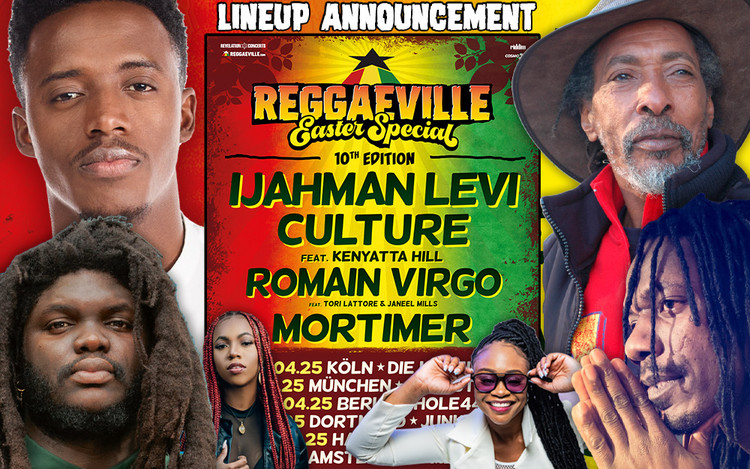Carlton 'Santa' Davis ADD
Be Thankful - An Interview with Donovan Carless
06/09/2024 by Angus Taylor
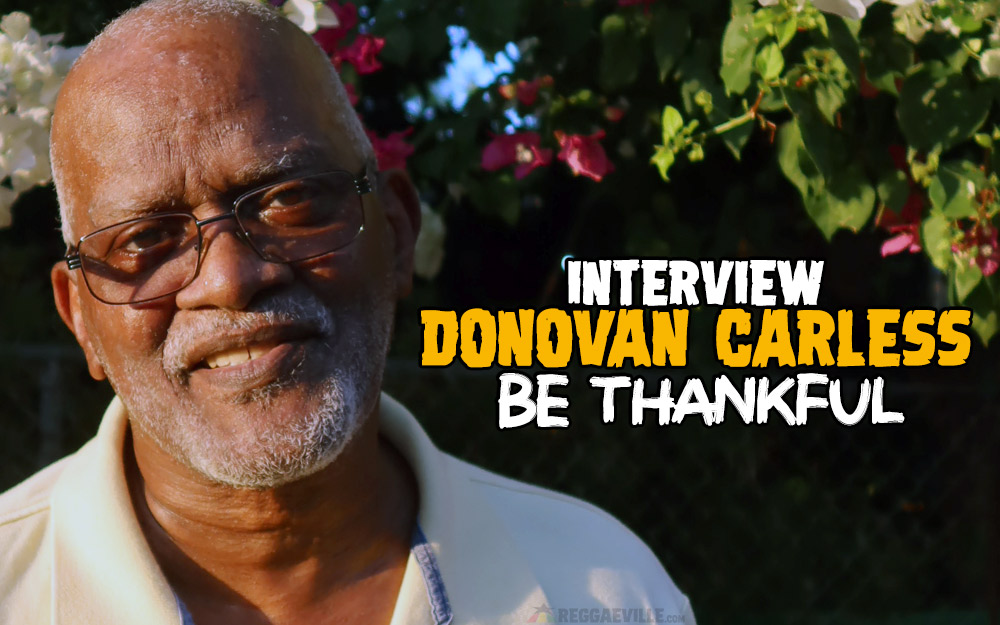
Donovan Carless’ 1974 cover version of William DeVaughn’s Be Thankful is greatly loved by reggae and soul collectors alike. Backed by the Soul Syndicate band at Randy's studio and engineered by Errol Thompson, his interpretation is a golden example of how nicely a reggae cover of a soul classic can work. The shimmering sweetness of the music demonstrates why Soul Syndicate, who became known in the 70s for their rough-edged ghetto roots sound, got their name.
At the time Donovan was Soul Syndicate’s lead vocalist and sang a series of well received covers of pop, soul and country hits in the early to mid-70s. But just when Soul Syndicate were taking off as a band, Donovan migrated to the US and focused on providing a stable living for his family. To give a sense of how highly regarded he was, the group’s backing vocalist was a young singer called Dennis Emmanuel Brown…
And although Donovan was a Jamaican soulie at heart, covers don't tell his whole story. Before joining Soul Syndicate he was a member of the duo The Little Roys with one Earl Lowe, and co-wrote and harmonised on 1969’s Bongo Nyah - the first overtly Rasta song to top the Jamaican charts.
This February, Reggaeville's Angus Taylor happened to be standing next to Donovan when the singer was visiting Soul Syndicate guitarist Earl Chinna Smith's yard in Kingston. On overhearing his name, Angus immediately arranged an interview about Donovan’s music career. The initial recording suffered from sound issues so a second conversation was recorded the next day. This interview is a composite of the two.
The timing was fortuitous, as Chinna was planning to rejoin and to go on tour with Donovan and the Soul Syndicate. By the time you read this they will have already played at the Austin Reggae Festival and a date at Rototom Sunsplash in Spain is planned.
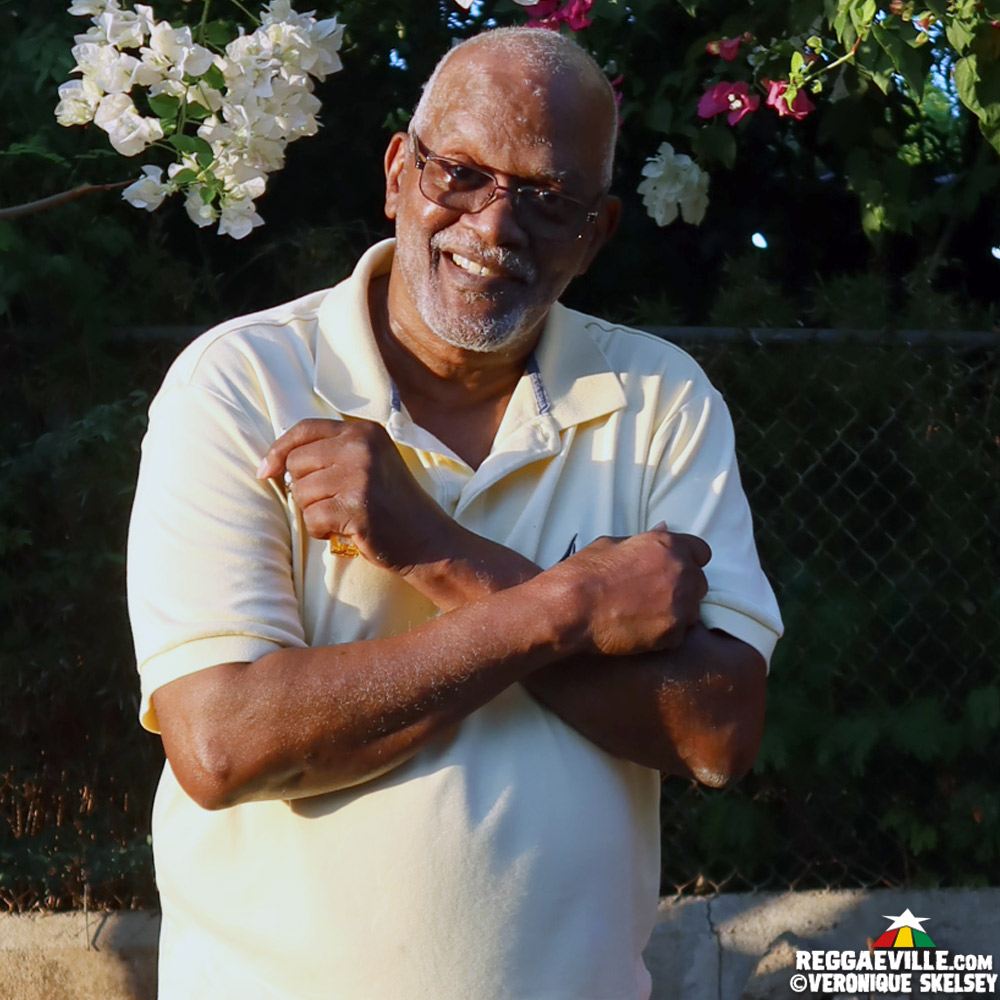
Alright, we're here at Chinna's yard in Saint Andrew Park. And I've just found out that the man standing next to me is the legendary soul cover version singer Donovan Carless. So how did you come to be at Chinna's yard today?
(Laughs) Yeah man, respect. Well, I reside in Raleigh, North Carolina and I haven't been home now in about ten years. And I decided to take a little vacation. I have been trying to make it and everything has kept me from coming down. Until I [finally] link up with everybody and find out what everybody is doing and who is in town and who is not in town. And Chinna was, of course, my original guitarist way back in the days so I linked up with him and he said “Yeah come through because I have a music I want you to voice”. So I said “Okay.” So here I am.
You're known for soul covers and this song you're doing with Chinna is a cover of one of your favourite singers.
Oh yes. It's a song by Jerry Butler called the Girl In His Mind. I've always admired Jerry Butler's style. And the way he brings forth the music. He has another favourite song called Strawberries.That was also one of my favourite Jerry Butler’s.
You've known Chinna for a very long time. How far back do you go?
I left high school in 1971. I recorded Bongo Nyah in 1969…
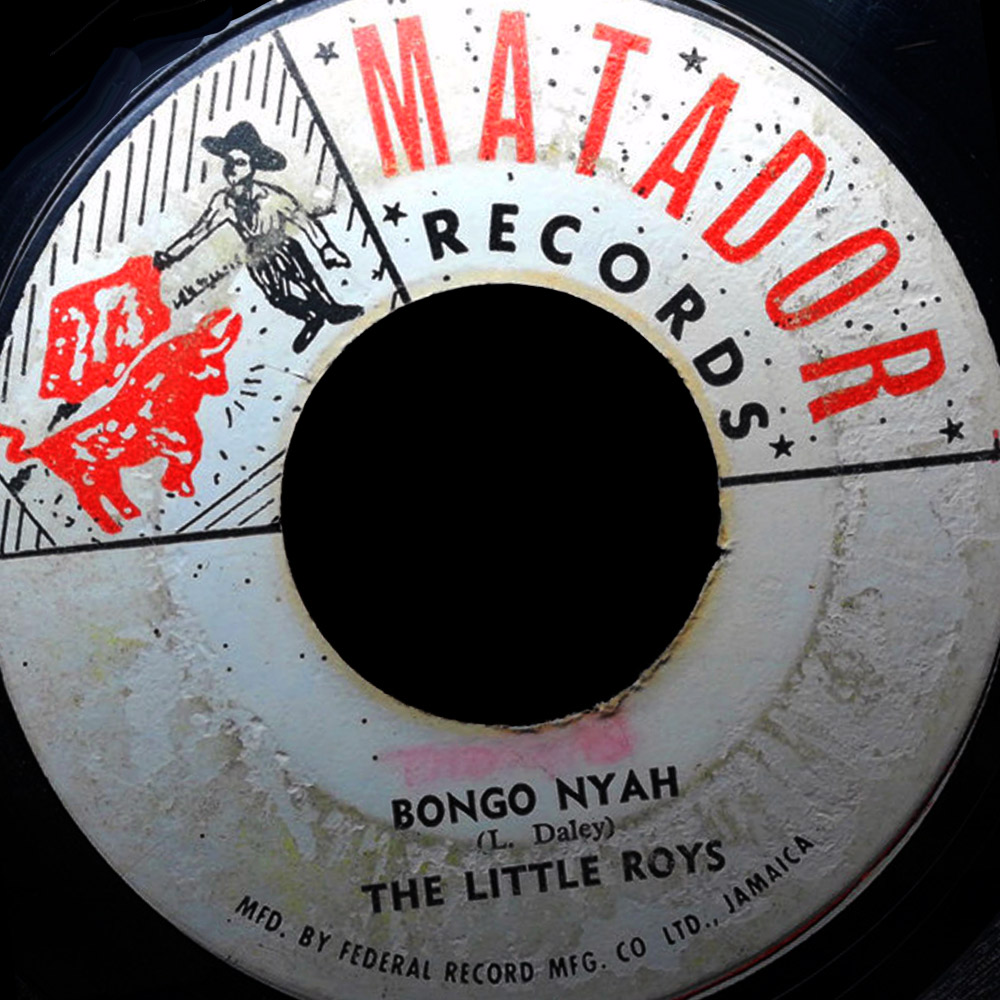
So late 60s? So you knew him before he joined Fully and Tony in Soul Syndicate?
Yeah, because we all grew up in the same district. The famous Greenwich Farm. That's where all the great reggae singers come from. When I say great I mean Roy Shirley, Delroy Wilson, Slim Smith, Pat Kelly… I mean I could name a bunch of them. All from Greenwich Farm. And that is kind of what inspired me. Because I loved music and these guys were just a big inspiration.
Where and when were you born?
I was born on June 6th 1953 in Kingston, Jamaica. I was born in the hospital but my original address was Greenwich Farm.
Was there music on your mother or your father's side?
No. Surprisingly not.
All just came from you.
All just came naturally man. I just loved it from a little youth, maybe four or five years old. I loved to listen to the music on the radio. The R&B and the soul music. I mean, I used to always think that any song they can sing, I can sing just like them or sing it to sound better than them. Reggae-wise you know? Sometimes I wonder “What is my true voice?” (laughs)
Which songs were you singing along to?
There was a song that says (sings) “Well, I went to a dance the other night, Everybody was there”. I think the song was called Over And Over. [Bobby Day, Over And Over] I've been singing that song man as far back as I can remember. And danced my little tail off when I was four or five years old.
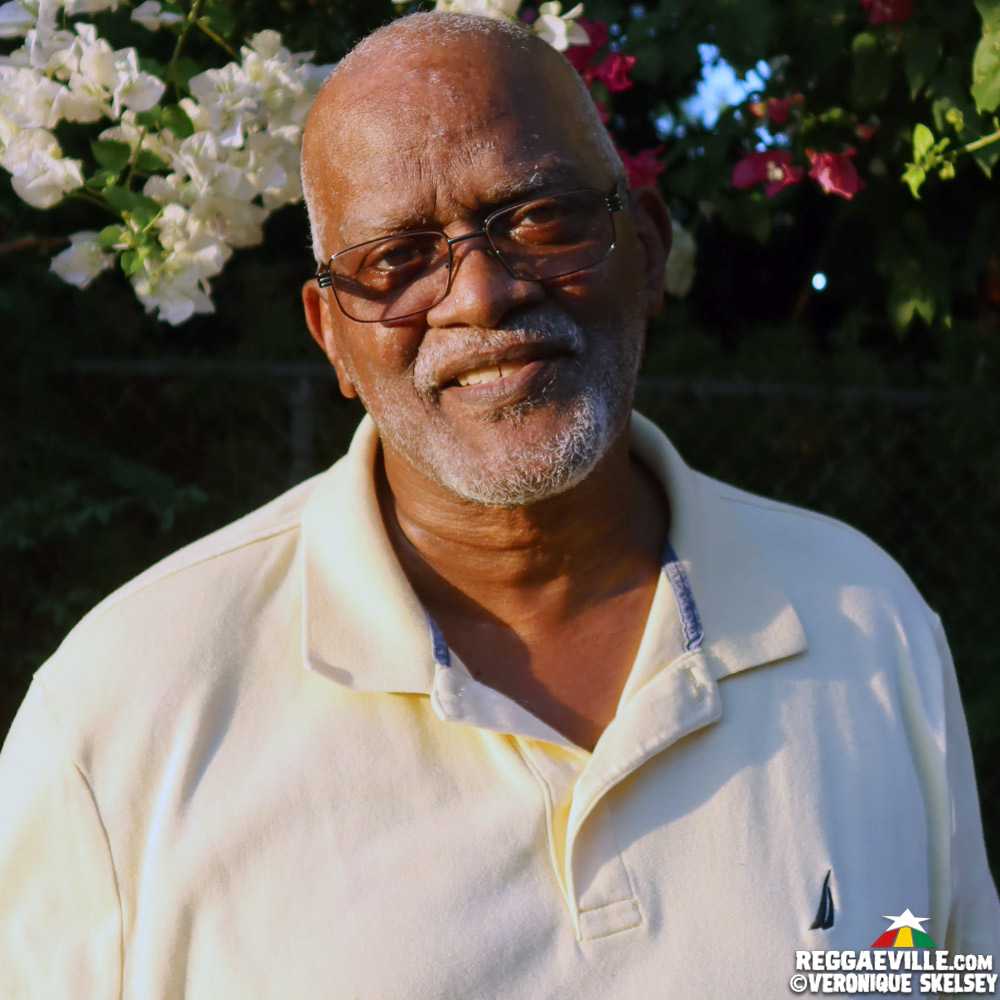
Cornell Campbell re-did that song saying “I went to a dance the other night. King Tubby and the dreads were there” as Dance In A Greenwich Farm.
Oh yeah!
Who were your favourite soul singers growing up?
Otis Redding, Jerry Butler. There was a group called The Dells. Just that Motown sound - that was what kept me going. My first gig was at my grand-uncle’s wedding. I’ll never forget that.
And you went to school with Little Roy?
Yes, me and Little Roy went to school and graduated the same year. We went to St. Andrew Technical High School. Everybody knew it as STATs.
Earl Lowe aka Little Roy, had already been recording with Prince Buster as a schoolboy.
Yes, he was already with Prince Buster. We actually sat down in school and wrote this song. We were just messing around and we wrote Bongo Nyah. Making sure it rhymed and that all the rhymes were in line and all that stuff.
And when we went to record, first we went to Prince Buster, and Prince Buster said “No, this song is too violent. That won't get any airplay”. So we kept trying at different places and everybody was telling us the same thing. It's like we weren't mature enough to figure out that we could change this word and that word.
So we went to Lloyd Daley, The Matador and he listened to the song and he loved the song. And I think about three days after he heard the song, we were in the studio recording it. When he listened to it, he called us back and he said “Guys, listen, the song is beautiful but I'm concerned about the language in there. It sounds too violent”. Because it used to say “If him resist Jah, bus up him head”. So he helped us to change it around and all of that. And would you believe that man went ahead and copyright that music and claimed all the rights and the royalties to it?
But it went quite high in the charts?
Oh yes, it was number one in Jamaica for six weeks. It went high in the top ten on the British charts. I mean, the song was very popular for six weeks.That's all you’d hear on the radio every time you turn on the radio (sings) ba ba ba ba ba! (laughs)
So that must have been one of the first openly Rasta lyrics to get in the charts.
Yes, it was. It was the first Rasta music that was played on the radio from what I heard. Little Roy told me that he did some research on it and that it was the first Rasta song hit.
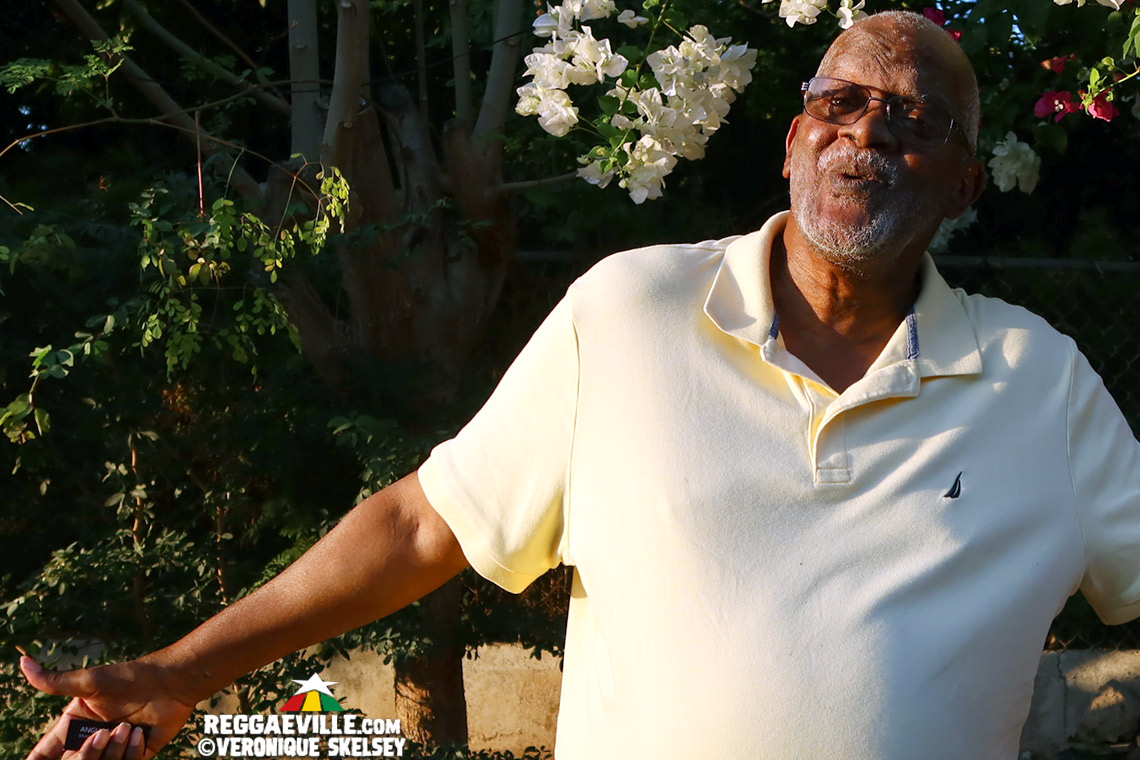
So were you influenced by Rasta at the time?
No. I was just a soul singer man (laughs) Little Roy was already a Rastaman. Not a Rastaman but a Rasta youth. Because he started to grow his dreadlocks and all that from in those days.
But the group was the Little Roys and that was you and him? And then he became Little Roy.
The Little Roys. That was me and him together. Right, after I didn't get back into it, you know? School was my thing and family was my thing. I really wasn't influenced by recording and all that stuff. That's why I got robbed so much! (Laughs)
Can you remember who played on that session?
After sixty something years it's hard to remember all the musicians. But I know Lloyd Charmers played on it. I know Hux Brown was my guitarist. I don't remember the drummer. On the keyboard was Snappin [Theophilus Beckford].
Boris Gardiner was on bass?
Boris Gardiner was on bass. Those were the main players.
So after that came out and you didn't get appropriate financial reward, did you leave the music for a while?
I linked up with Soul Syndicate right after Bongo Nyah. I became their lead singer. After I did Bongo Nyah and it was so popular and everything, they wanted somebody on the front line who could really represent so they invited me. And of course I was born and raised maybe a hundred yards from Fully's house where the band practised. So they knew about me and they knew I loved singing, so they invited me when their main vocalist was leaving. The main vocalist migrated. And they thought that my voice was the right fit. Because number one I could sing any soul song that they had out there, and I could sing reggae. And back in those days we would sing cover music. We played soul. We played calypso, We played R&B. We played reggae music. It was just a mixture. And my voice was great for all genres of music.
And was this before Chinna joined?
I was already in Soul Syndicate band before Chinna joined. The lead guitarist that we had, he migrated to the US…
Cleon Douglas…
Cleon Douglas. And after he left, Chinna stepped in. And it just blossomed from there because I have always looked at him as a great musician and for some reason he has always admired me as a great vocalist. I’ve always told people “I am not an artist, I’m an entertainer!” (laughs) That’s what I love doing.
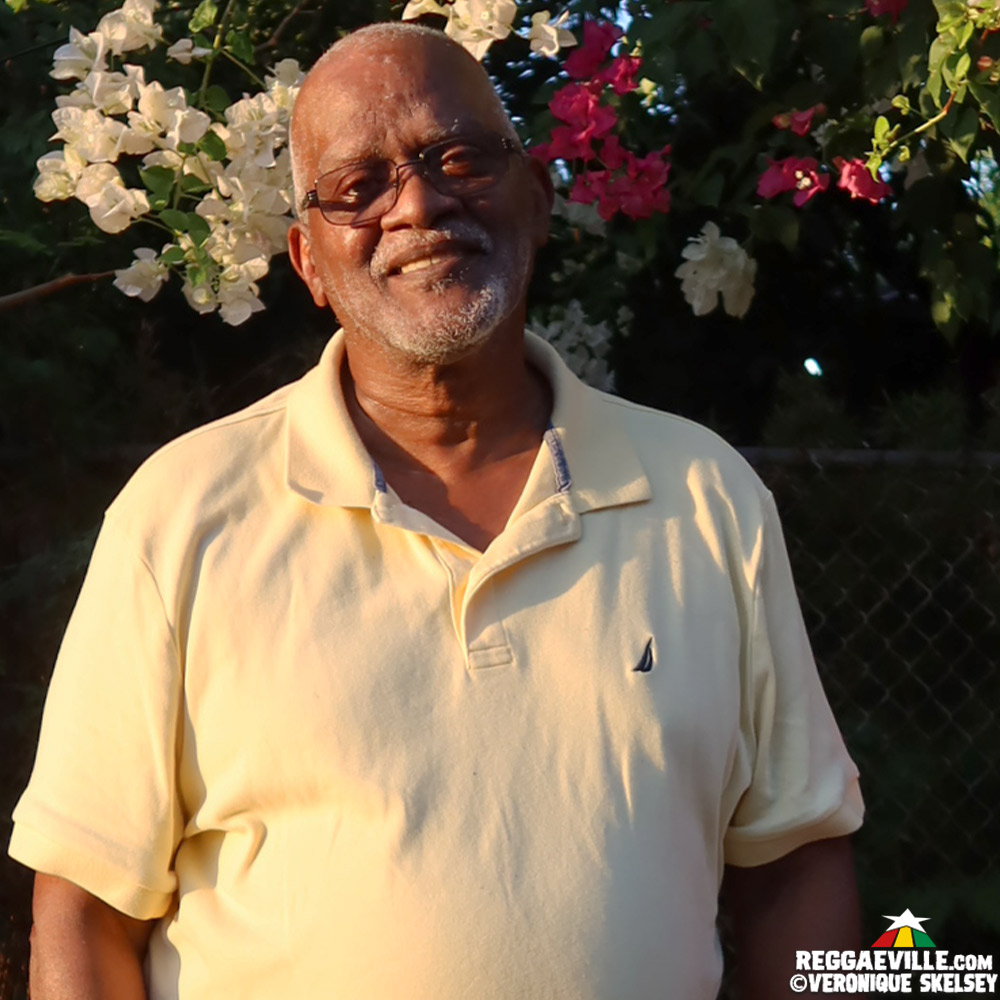
So what did you start doing with Soul Syndicate?
We did a lot of gigging during those days. And then when we decided to start doing some recordings, I did a music named Garden Party, I did one named Be Thankful, I did one named Sweet Caroline, I did one named…
How Can I Tell Her?
How Can I Tell Her.
So a lot of cover versions. You really had a way with a cover version.
Yes. Absolutely.
So which came first? What was the first cover song that you recorded with them?
It was either Be Thankful or that country song Garden Party. It was one of those two that I did first. [Sweet Caroline is listed as first on discogs] Because after I left high school, I came up here [US] just to get away and see what America was all about. My mother was already up here. Of course Randy's Records, Chin Randy's who I was recording for, they had a record store here in Brooklyn. And when we went up there, they said “Hey, if you're going to be here for three or four weeks, you want a job?” So I said “Yeah, I'll do something while I'm here. Make some money”. So I worked with them for a while and while I was there I heard all the new music that was coming through the store at that point. Garden Party was one of them, I instantly fell in love with that.
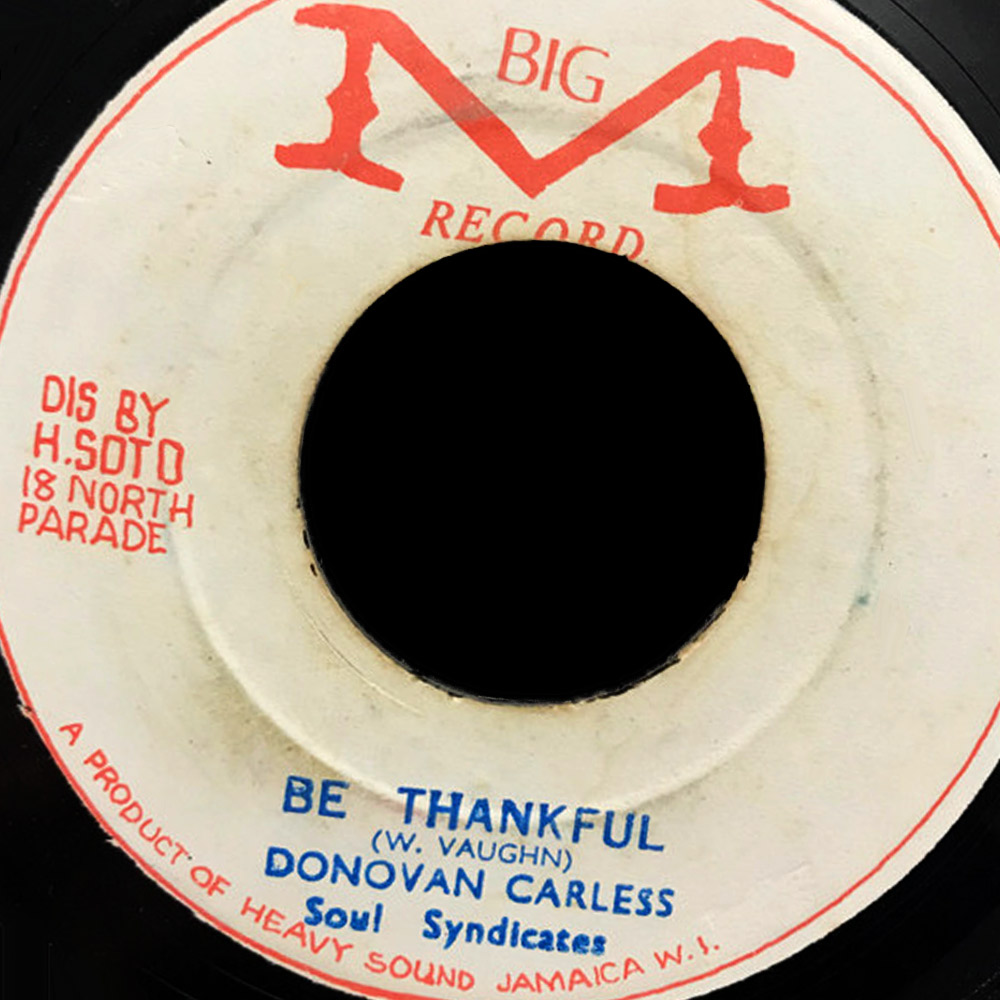
Rick Nelson.
Rick Nelson. Chinna was instrumental in that. That Hawaiian guitar sound. Chinna searched far and wide until he found someone who could play that mechanical guitar sound. I don’t remember his name.
And you also did a cover of Neil Diamond, Sweet Caroline?
That was another of those songs that I heard. I used to be a cover music fanatic. If it’s a cover music and it sounds great I want to do it. I’d always brag and tell people “I bet I can sing it better than he’s singing it”. If I’m going to cover somebody’s music, you’d better believe I’m going to do it just as good or better. I’m not going to do it any justice by doing it any worse!
And you also did a version of Love Of The Common People?
That one was inspired by Eric Donaldson. Because we were on the same year on the Festival Competition. He did that as his introduction song. And Soul Syndicate was there and they said “Donovan, wonder if you could do that song?” But I thought that (sings high note) I didn’t have it in me. But they encouraged me to try it. And we did it and it did ok.
So Be Thankful was another of these songs you heard working at Randy’s Records?
And then Be Thankful, William DeVaughn. Man, William DeVaughn, he's smooth! So I instantly fell in love with those and Mr. Chin who was the owner at the time said “Why don't you take a couple of copies back to Jamaica and see whether they let you record it down there?” So I took it back and the guys in Jamaica, the Chin Brothers, said “Yeah, we want you to record this song”. Recorded it with Soul Syndicate, and from there my music career started to take off again. And really, at that point I wasn't ready for it. I wasn't prepared for it because I had a child born around those times. And my main interest was that my daughter was taken care of financially, spiritually and morally. So music now, I wasn't really doing recording anymore, I was only doing gigs with the band. And we did that for a long, long time.
Man, I have to laugh about it because when I was the lead vocalist for Soul Syndicate I had the likes of Dennis Brown that came along and wanted to join Soul Syndicate. But they told him they already had a vocalist and after we heard him sing a couple of times we said “Yeah, we can use him as another person in the group”. And funnily enough, Dennis Brown actually became my backup singer! (laughs) He was singing harmonies and all of that for me and I was the lead singer. And then after Dennis went on to do Silhouettes with the Soul Syndicate his career took off big time, then he left the group.
Then Freddie McGregor wanted to join us. And Beres! Beres wanted to sing with us so bad. And we wouldn't give him a chance! (laughs) In our rehearsal place it was like in the yard. Beres would always stop by our rehearsal and he always had a guitar over his shoulder, wanting to know when is he going to get a break? If you ask Beres about Donovan Carless today he would tell you that Donovan Carless is one of his inspirations. But I didn't pay attention to all that stuff because I wasn't the kind of person who wanted a lot of attention. I'm still like that these days. I mean, I've sang with the likes of Bob Marley. I've carried harmony for Bob Marley.
Tell me more about that.
Back in the days, we played lots of clubs and all that. And if Bob Marley showed up as Bob Marley and he wanted a backup singer the band would say hey we have a backup vocalist for you. And I would sing back up for him. Whichever group came to work with us and they needed a backup voice I was the one doing it. But in all that time I honestly did not think hey I am singing with some great people or stick my chest out on all of that. No, that wasn't me. I was the same Donovan.
Let's talk more about Be Thankful. We were just in the yard listening to it before you arrived and Chinna was talking about the guitar licks that he did.
The musicians were Fully Fullwood, Chinna Smith, the great Tony Chin, Santa Davis.
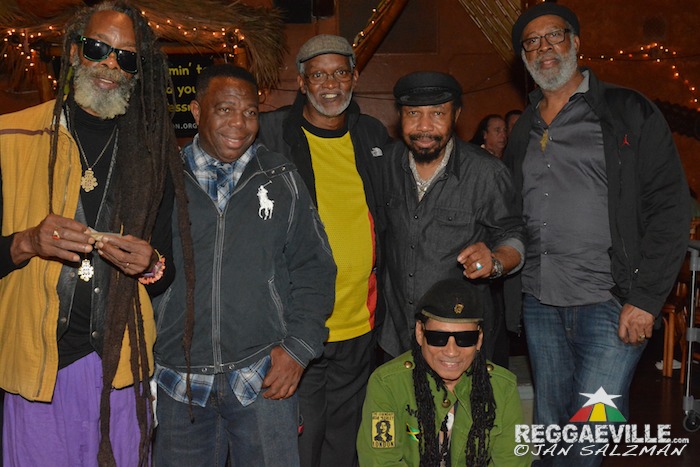
Who was playing keyboards at the time?
You know what? Through the history of Soul Syndicate we have only had three or four regular keyboard players. Because usually once they join Soul Syndicate the love and the music and everything you don't want to leave. We had Touter [Harvey] play with us.
That's right. He played on some of those early Dennis Brown tunes.
And we had a regular keyboard player named Scotty. He was murdered years and years back. Then after Scotty came along Keith Sterling. Then after Keith Sterling we had Jahmaka Johnson. We had three horn players at that point. We had a brother named Dizzy. And we had Arnold Brackenridge. And we had a saxophone player named Tenor Grant. So we had a full band.
Who was the engineer on that session? Was it Errol Thompson?
The great Errol Thompson. Man, he is legendary and he will never be forgotten. That guy was a master. At mixing and recording reggae music. He just had the ear for it.
Which is why that tune sounds so good today. So let's talk about another cover version you did. How Can I Tell Her by Lobo.
(laughs) When I first heard that one it kind of meant a lot to me! Because I had a young baby that was born around that time. And I would never dare say that baby was a mistake because I was very much in love with her mother. But I met someone else who I felt like I was more compatible with. So I started dating this other young lady. I won't call her name because she would kill me!
But I heard that song, man, and especially where it says how can I tell her, I was wondering how in the world am I going to tell my daughter's mother that I've met somebody else and that I'm going to move on? And that's the only way that I could do it was through music. And you know what? Until this day I have never told my wife the true story behind it. Because being an upright woman, they are going to reject that kind of thing. But she kind of figured it out to herself even though I denied it and she said “So you were trying to figure out how you were going to tell me about her?” (laughs)
I tell you man, the young days were fun. That's all I can say, they were just fun. We did some crazy things. But in later life we become more mature and we realise hey we did things for reasons. How Can I Tell Her was done for a reason. Garden Party was just another music that I just loved the swing of it and the lyrics and all of that. And it just sounded to me like a music that I could change into a reggae and it would sound right. Because they used to call me the cover master. (laughs)
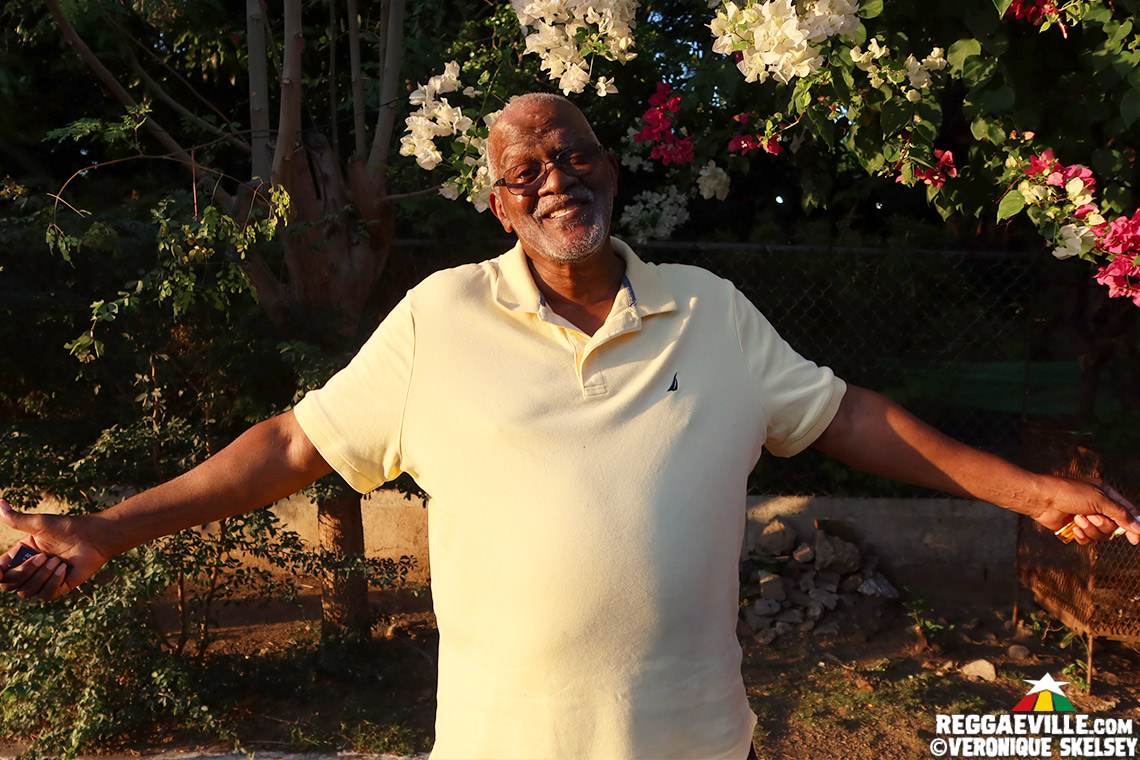
They were right.
Man, if you ever hear me sing a live version of Me And Mrs Jones? You would swear that that was Billy Paul singing (sings a few lines). I was reminding Chinna about it and he said “Donny, you can still do a reggae version of it. Whenever you want to I'll build the rhythm and send it to you and you voice it”. We were strong as a cover band.
One cover song that you said didn't do as well, but we'll mention just for the completists, was Deeper And Deeper with Fully.
Yeah, Deeper And Deeper with Fully. That was a nice groovy music but it didn't really do that well. I'm not sure but they might have put that on one of our Soul Syndicate albums. Because we did two albums. We did Harvest Uptown and the other one Was, Is & Always, that didn't do that well. Deeper And Deeper was more like an instrumental with me singing in the background.
You mentioned Dennis Brown. After you departed, Soul Syndicate did some tunes with Dennis Brown and you could hear that Chinna knew how to fold a soul tune into what they were doing. He used the intro to Love and Happiness by Al Green as the intro to Westbound Train. And then later with Freddie McGregor he did Love Ballad and he turned You Are My Starship into Natural Collie. Clearly you guys all loved soul and knew how to integrate the soul on the reggae.
Oh yes. We listened to a lot of soul music back in those days. Reggae and soul. Not that we couldn't write our own music back then but, you know, you hear something great and you try to figure, in a reggae environment where all your hearing is reggae beats, how that song could be a great reggae song. And the next thing you know we're going in the studio and we just try it and it comes out boom! We have a cover hit!
In Jamaican music there were a lot of cover versions from the earliest days before soul from the rhythm and blues days. Why do you think that Jamaicans have such a way with the cover version whether it be your rocksteady, reggae or ska? A cover that transforms it and makes it as good and sometimes even better than the original?
Oh yes. That I really can't give you an explanation for. It's just something about Jamaicans in general. We don't like to copy but if we're going to copy it's going to be something good that we're copying. And I can just about guarantee you that whatever you make original, we're going to do it to the best of our ability to sound just as good or better than what you did. Of course you can be dealing with two different kinds of audiences. But the reggae audience, man if they hear some good cover music and it feels right, they're going to dance to it.
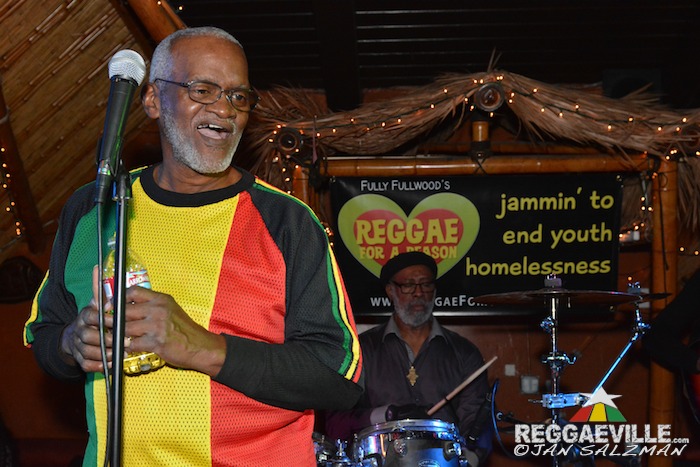
How did you leave Soul Syndicate and how did you end up in the USA?
Well, I left Soul Syndicate for one reason only. Family. My family just meant more to me than music or anything else. I'm a god-fearing person and I just felt like I grew up seeing my mother and father who are now deceased and they were married for 50 something years. Never saw my father or mother in the hospital. The only time I saw my mother in the hospital was childbirth. We just follow in that trait man. I just had the wisdom from my father to know that if you bring children into this world you're going to take care of your children and raise them just like I raised you all. You're going to treat your children the same.
And hey, I missed it. I miss the music now. When I look back. Because lots of older musicians been saying “Where have you been Donovan?” And they're saying “Man, you could have been one of the greatest had you stayed out here and continued”. But I say, you know what? My son went to college and got his degree. My daughter went to college and got her masters. She now has her own business. My other son, he has a truck. Everybody is successful. So I'm proud of what I did.
So how about what you've been doing in the USA? You run your own jerk restaurant.
Yeah, right now I run my own restaurant called Jamaica Jerk Masters [Raleigh, NC]. And it's just gratifying to me because I look at the restaurant business and music as in the same category. It's entertainment. You're entertaining people. When you feed people you're entertaining them. So I love it.
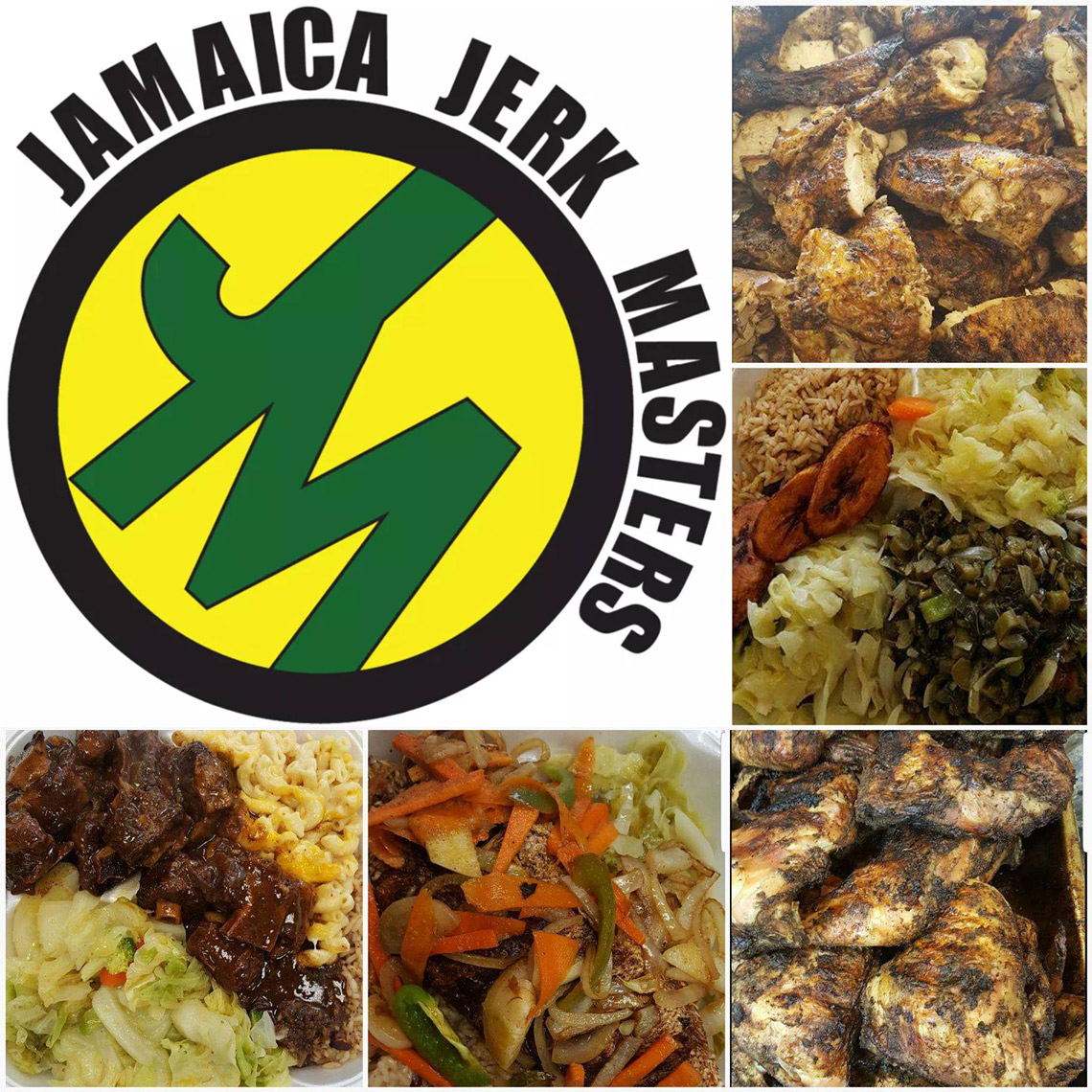
But you've also been gigging and playing live. Tell me about what you've been doing.
Absolutely. I've been playing all around North Carolina, South Carolina, Virginia. I've done some tours with the Soul Syndicate band because they called me back up after a long break. I've toured with Soul Syndicate and we've toured about 50% of Europe. Brazil, South America, all over. We've done a lot of touring. And I realised what I missed. I missed the camaraderie. Being out there with these guys creating entertaining music. Not to say I don't miss my family when I'm out there too but I felt like, ok I sacrificed and did this for my family, so now it's my time. So I'm back.
Another singer who resides in North Carolina is Mr Keith Poppin.
(Laughs) Oh yeah.
You and he did some stuff at Randy's and he worked with the Rocking Horse. In fact I've got a record that mis-credits your Be Thankful to the Rocking Horse.
Ok! So surprisingly I ran back into Keith Poppin after years and years and years, maybe 30 years. Because when I lived in Jamaica I didn't see any other Jamaican musicians that were in my neighbourhood that I could reach out to. I was just gone, missing in action. But when I met Keith Poppin, man, and we sat down and started to reminisce on some of the old days and the music that was played. He was also one of those people who loved when Soul Syndicate backed him up. Because he knew he was getting quality music back in those days. So I see Keith Poppin on a regular basis now. He lives right in my town Raleigh, North Carolina. So we see each other quite a bit. He is doing his thing and I'm doing my thing and every once in a while we get together and we end up doing something together. A gig or something. So me and Keith, we are cool.
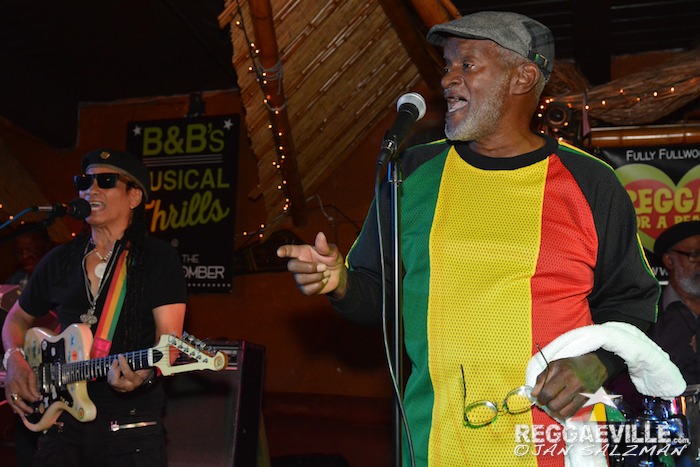
So you and Soul Syndicate are going on tour playing at Austin Reggae Festival and also a big European festival.
Yes, and I'm looking forward to it. Because as a group, the Soul Syndicate, we haven't toured in maybe around three or four years now. We did a few in California in the last couple of years. But I'm really looking forward to this tour because after we go to Austin and do our thing then we are going to move on to Rototom or Rotterdam?
Rototom Sunsplash in Spain?
In Spain, right. We're going to be doing that and looking forward to it.
Good luck with the tour and the release of the Jerry Butler song.
Thank you man. It's a pleasure talking with you. I appreciate the fact that I'm recognised as bigger than I recognise myself! (laughs)




